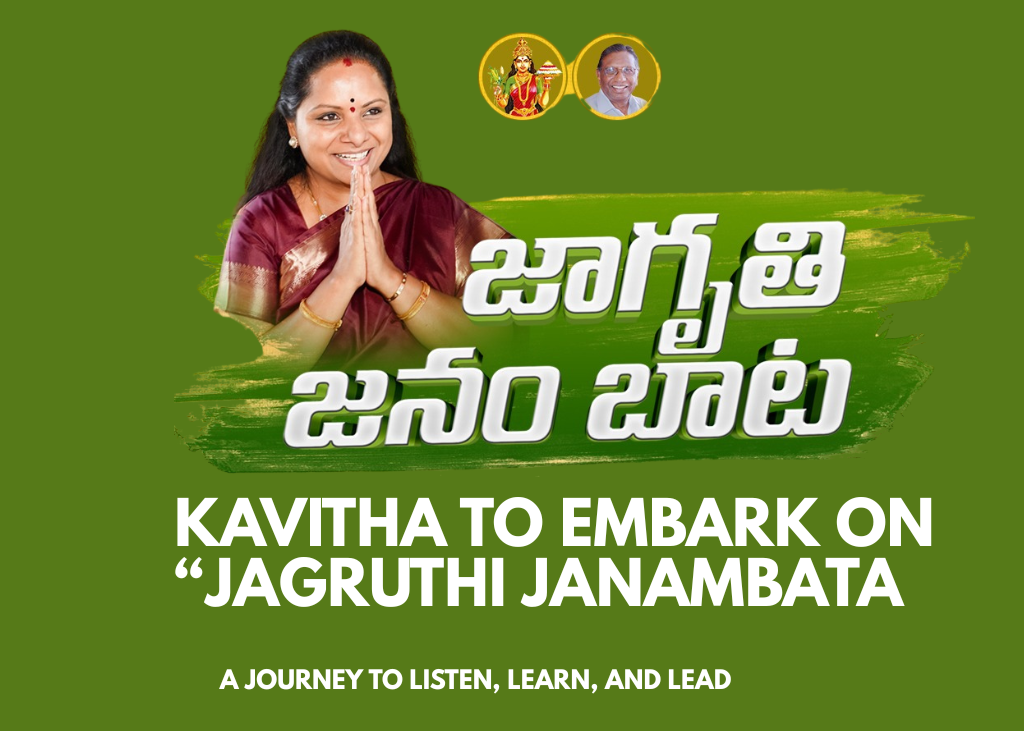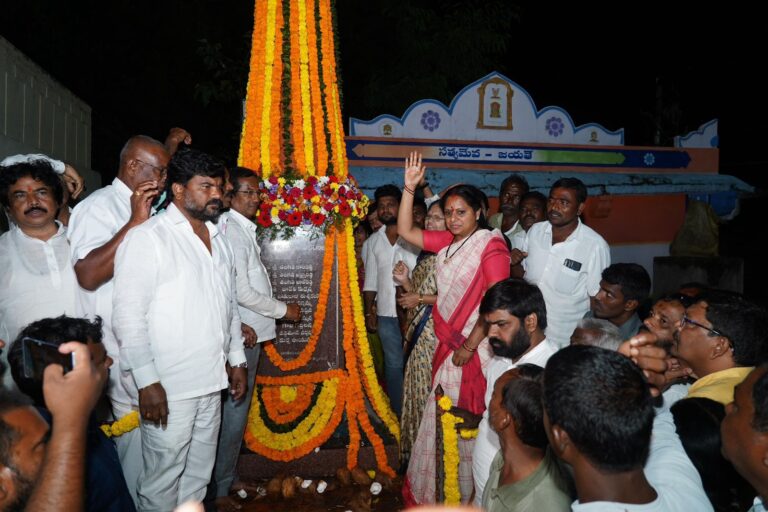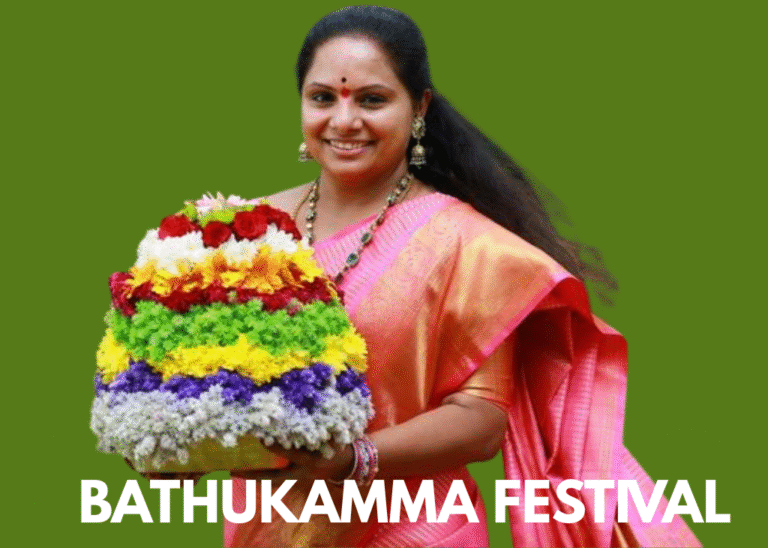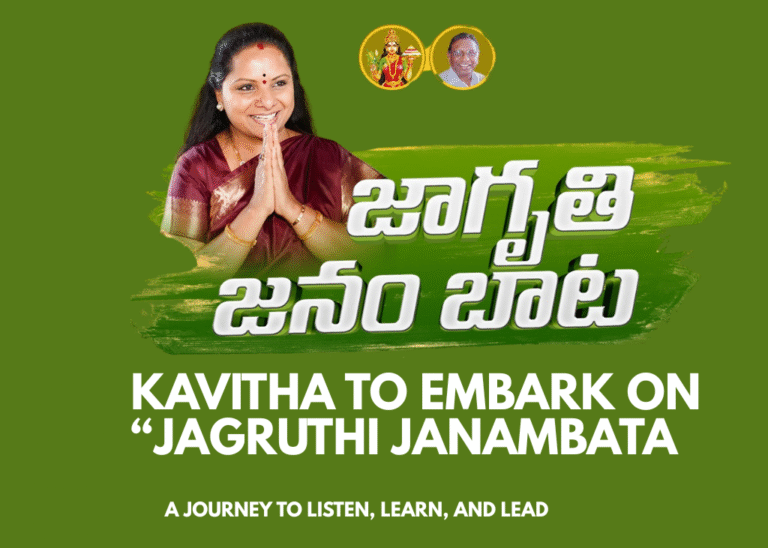A new grassroots journey is taking shape in Telangana. Jagruthi Janam Baata, which loosely translates to “the people’s path,” has begun moving through villages and towns, aiming to place citizens at the center of the conversation.
Unlike conventional rallies or stage shows, the Janam Baata focuses on smaller, personal meetings. Local teams are walking through colonies, sitting in school yards, or gathering under roadside shelters to talk with residents. Farmers share their worries about water and markets, women bring up health and education issues, and young people speak about jobs and migration. Each voice is being carefully noted, with organisers stressing that this effort is about hearing first and promising later.
One volunteer in Hanamkonda explained the spirit of the walk: “It’s not about speeches. We just sit down, ask what troubles them most, and listen until they finish. That’s the difference.”
The process is divided into three steps: Listen, Learn, and Lead. The listening is happening in the field, face to face. The learning will come later, when the collected notes are reviewed by local representatives and subject experts. The final step, to lead, will involve shaping these findings into suggestions that can be taken to policymakers and government offices.
More than policy, though, the aim of Jagruthi Janam Baata is to remind people that their voices matter. Organisers hope that by involving communities directly, they can build trust and spark a sense of shared responsibility.
As the walk continues across Telangana, it is being watched closely. For supporters, Janam Baata is a test of whether politics can return to the basics — listening first, acting later — and whether a state can move forward by walking step by step with its people.


















